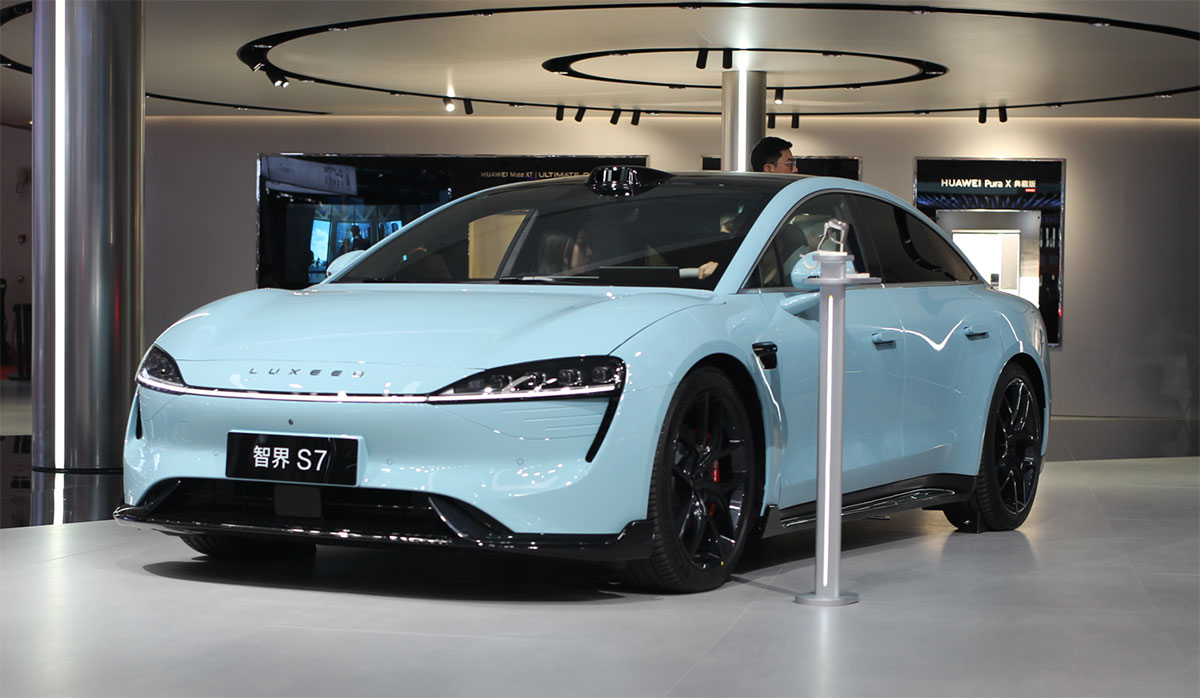Huawei-backed Luxeed to switch to CATL batteries in some models due to CALB capacity constraints
This highlights potential supply crunches in China's battery sector amid a recent surge of new vehicle launches.

- This highlights potential supply crunches in China's battery sector amid a recent surge of new vehicle launches.
- Luxeed vehicle pricing remains unchanged despite CATL cells costing more than CALB's.
Luxeed, the new automotive brand jointly developed by Huawei and Chery, will switch to higher-cost CATL (HKG: 3750) battery cells for certain models due to insufficient capacity from its primary supplier CALB (HKG: 3931).
Local media outlet Lanjinger reported the move today, citing a source within Huawei's HIMA (Harmony Intelligent Mobility Alliance) business. This underscores potential supply constraints in China's battery sector amid the recent surge of new vehicle launches.
A batch of 82-kW batteries from CATL will be used in select Luxeed models, matching the specifications of previously employed CALB batteries, the report said.
The performance, lifespan, and functionality of both brands' batteries meet Huawei's Giant Whale Battery platform standards, with identical warranty policies, the report noted.
The move aims to accelerate vehicle deliveries, enabling buyers to benefit from the current national purchase tax reduction policy set to expire by year-end, the source said.
Vehicle pricing remains unchanged despite CATL cells costing more than CALB's, the source added.
CATL, China's largest battery manufacturer, held a 42.81 percent market share in China by installed volume in September, according to data from the China Automotive Battery Innovation Alliance (CABIA). CALB ranked third with a 7.38 percent share in September.
Luxeed, one of the brands under Huawei's HIMA umbrella, currently offers the S7 sedan and R7 coupe SUV, both updated on August 25.
The updates for these two models mark the first products launched by Luxeed after entering its "Phase 2.0," featuring Huawei's ADS 4 advanced driving assistance system.
With China's current new energy vehicle (NEV) purchase tax incentive set to expire at year-end, dozens of new models were launched last month to capitalize on the current more favorable policy.
From 2024 to 2025, China has been continuing exempting NEVs from purchase tax, but the tax exemption per vehicle does not exceed RMB 30,000 ($4,200).
From 2026 to 2027, China's NEV vehicle purchase tax will be levied at 5 percent, half the standard rate of 10 percent, with a maximum tax reduction per vehicle capped at RMB 15,000.
On September 29, Nio Inc (NYSE: NIO) announced it would prioritize its 100-kWh battery packs for third-generation ES8 production over battery swap stations to accelerate the SUV's deliveries amid supply constraints.
Short-term battery supplies for some swap stations would be impacted, with ES8 owners receiving charging subsidies, Nio said at the time.
Discussions about capacity constraints at major battery suppliers have recently surfaced on Chinese social media, with claims that planned production volumes for some new models have been impacted.
($1 = RMB 7.1236)
Disclaimer: The views in this article are from the original Creator and do not represent the views or position of Hawk Insight. The content of the article is for reference, communication and learning only, and does not constitute investment advice. If it involves copyright issues, please contact us for deletion.